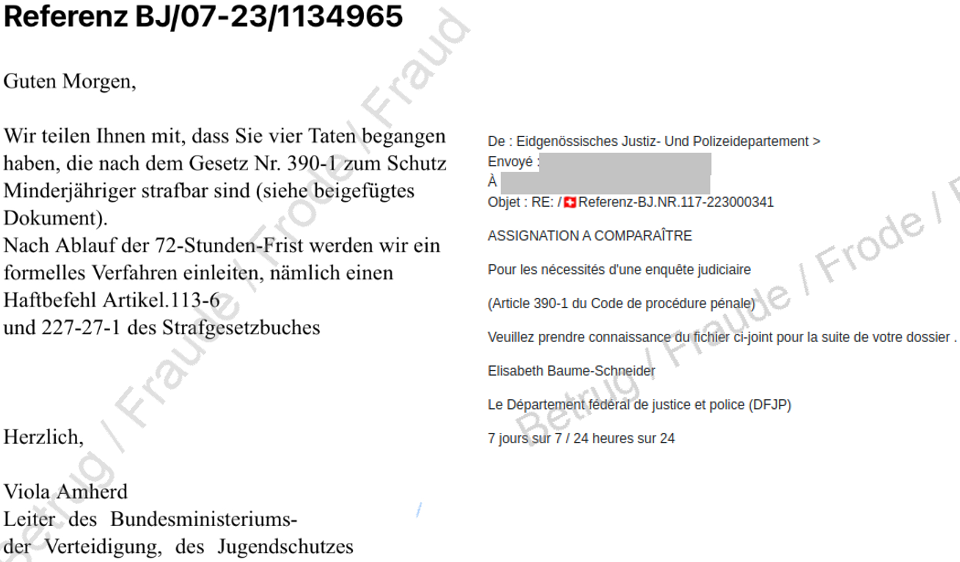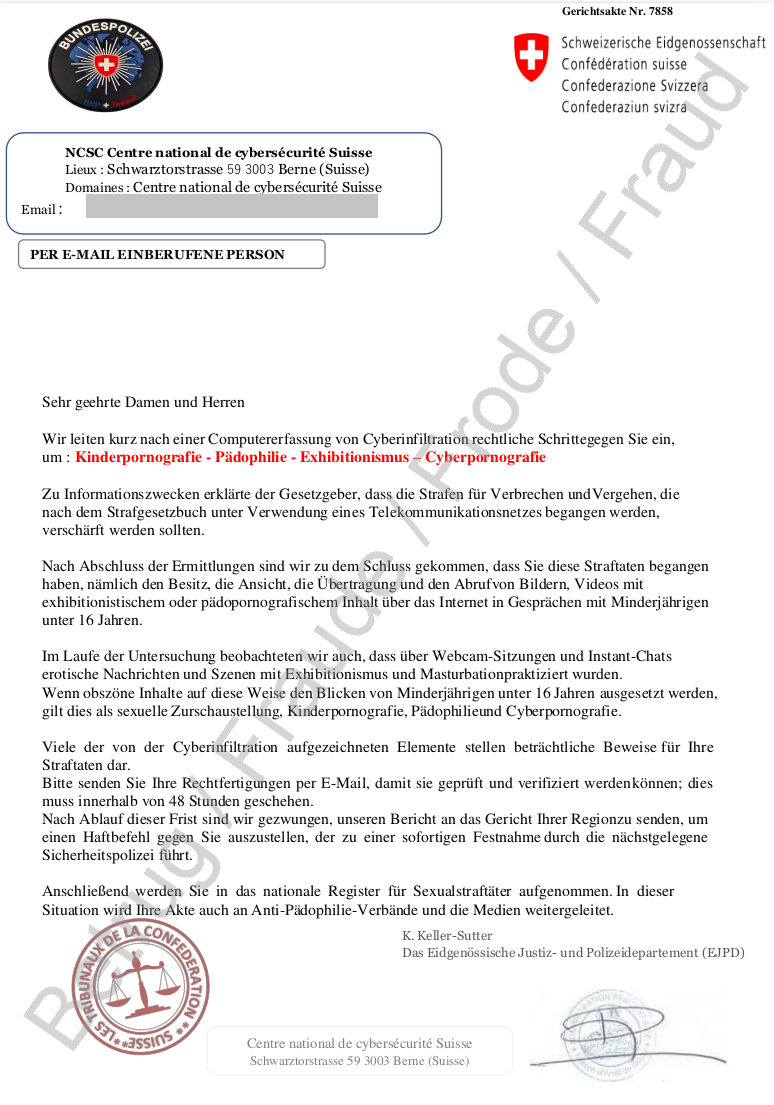02.04.2024 - Federal Councillors are highly respected, widely trusted and enjoy a good reputation in Switzerland. Scammers take advantage of this: to lend credibility to their threatening emails, they make them look like they were sent by a member of the Federal Council. The scammers threaten their victims with criminal charges, usually for illegal pornography, unless they pay a certain amount of money.

Threatening emails supposedly from the authorities
Threatening, supposedly official emails accusing the recipient of a crime are one of the most common incidents reported to the National Cyber Security Centre (NCSC). In most cases, the false allegations have to do with possessing illegal pornography, paedophilia or a similar offence. The scammers often use the names of fedpol director Nicoletta della Valle or NCSC director Florian Schütz as the fake senders. The names of other officials are also sometimes used: fake emails from Karin Keller-Sutter and Elisabeth Baume-Schneider, the former heads of the FDJP, are currently circulating, as are emails supposedly from the head of the Defence Department, Viola Amherd. However, the fact that Beat Jans is the new head of the Department of Justice and Police does not seem to have caught on with the cybercriminals. So far, the NCSC has not received any reports of fake emails being sent in his name. As a comparison, when Elisabeth Baume-Schneider took office on 1 January last year, it took just nine days for the first fake emails sent in her name to be reported.


Some of the emails accuse the recipients not of pornography or paedophilia, but of tax fraud and tax evasion. Here, too, Federal Councillor Keller-Sutter's name is used; she is referred to as a financial inspector and her signature forged. The recipients are accused of offences relating to wealth tax, property tax or social security contributions, among other things. It is likely no coincidence that a variety of crimes are listed: it is a way for scammers to increase the likelihood that one of the accusations actually applies. However, this approach is much less common than the one explained above:
In such cases, the fake law enforcement agency will usually offer to settle the matter in exchange for a sum of money. However, if the victim responds to the threat and pays the fee, the scammers increase the amount owed – and then keep increasing it. The scammers will do this until the victim gives up or runs out of money. The same approach is used in advance-fee and romance scams. The intended effect is psychological: once the victim is involved in the scam and has paid out some money, they may be reluctant to admit that they have made a mistake and cling to the idea that everything will be fine if they just keep paying.
What to do if you receive a threatening email
- Do not allow yourself to be pressured into responding to the threat.
- Ignore fake extortion emails and do not allow yourself to be intimidated.
- Contact the police if you are unsure.
- Be sceptical if you receive emails that require action on your part and that carry a threat of consequences (loss of money, criminal charges or criminal proceedings, blocking of an account or card, missed chance, misfortune) if you do not do what is required.
- Bear in mind that email sender IDs can easily be spoofed.
- By reporting the incident to the NCSC, you can help us identify threats early and warn others.
Current statistics
Last week's reports by category:
Last modification 02.04.2024





